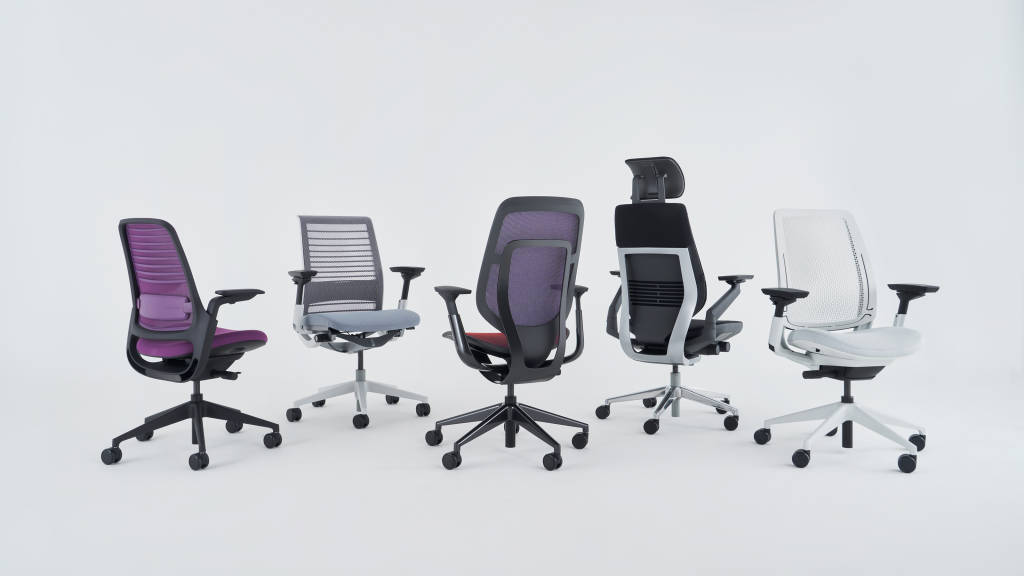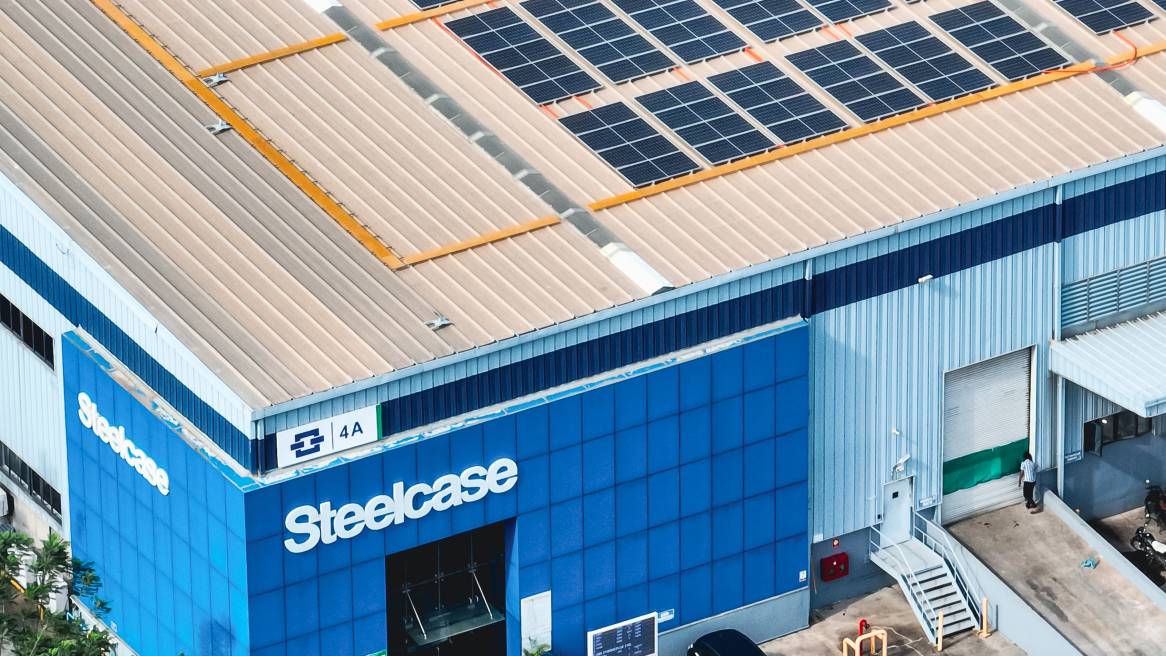Steelcase Debuts Rooftop Solar Power Initiative
For the past 100 years, Steelcase has sought to protect people and the planet with its deeply-rooted environmental and social ethos. In Asia-Pacific, Steelcase Manufacturing Pune (SMP) put these values into action when it became the company’s first plant to install a solar photovoltaic (PV) system in 2021.
Supporting the growth of multinationals in Bangalore, Steelcase has been in the India market since the opening of our first sales office in 2008. The SMP later opened its doors in 2012 to produce designs locally, so as to increase business agility in the market while reducing our carbon footprint in manufacturing. As we continue to grow our capabilities in India, the Steelcase team has always been on the lookout for opportunities to do better for our local community and the market that we serve.
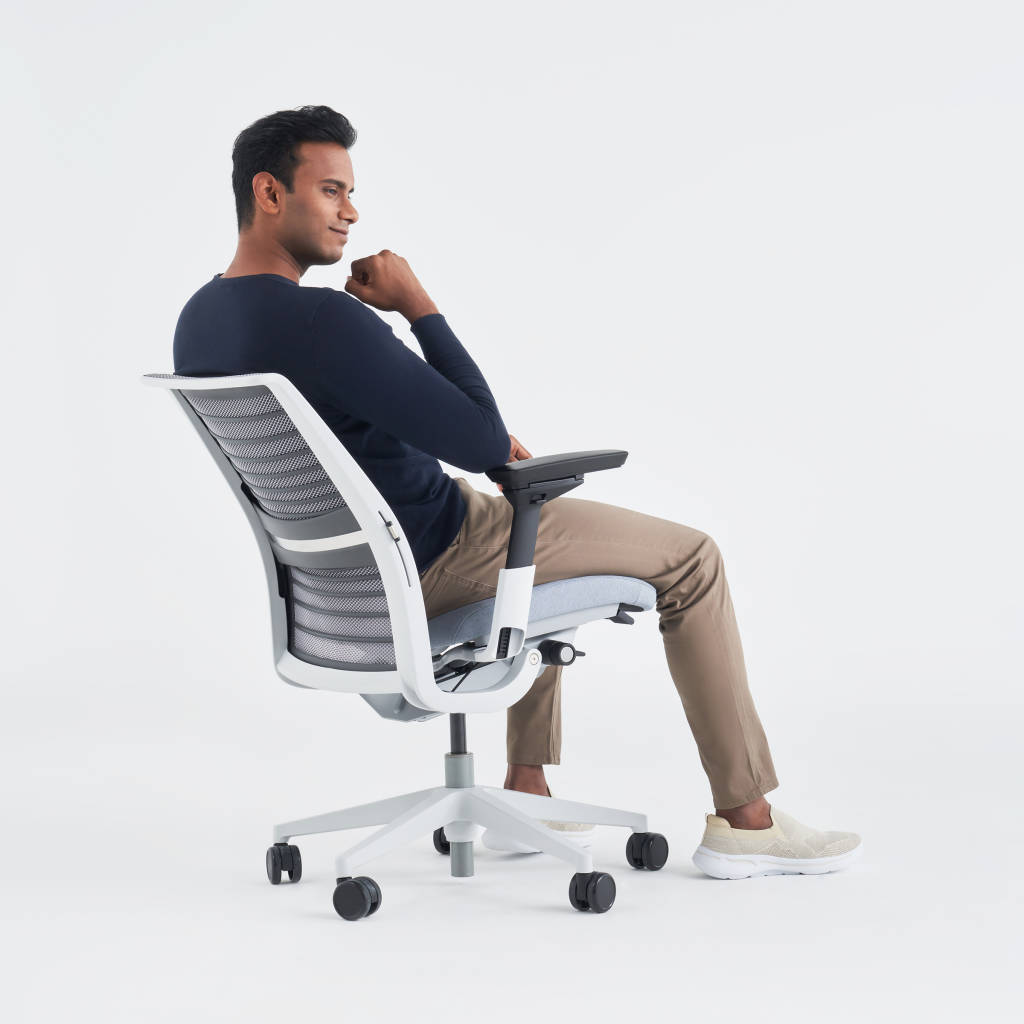
Working closely with our local partners, including property owners and technical advisors, Steelcase was able to launch the rooftop solar power initiative in 2021.
Abhishek Deshmukh, SMP Manager of Operations Engineering, had developed a step-by-step logistics and execution plan across the factory’s two facilities. From legal and statutory approvals to design, engineering, procurement, installation and safety audits, Deshmukh and his team identified the best local suppliers and coordinated all the moving parts.
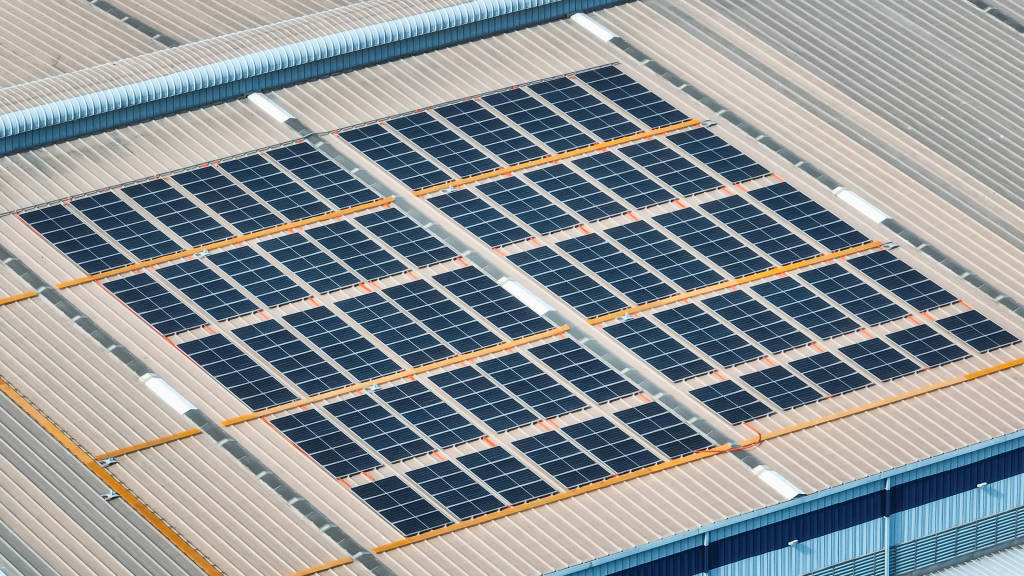
“Globally, Steelcase is carbon-neutral, and as a part of our ESG strategy, we want to be carbon negative by 2030, so this initiative comes at the right time. It sends a message to all the employees that we are inspired by the global Steelcase vision, and we are moving towards a green way of working,” says Deshmukh. “It’s also really good for morale – I can see people happily and proudly saying that we are using solar power for our day-to-day productions.”
With an average temperature ranging from 19 to 33 °C (66 to 91 °F), Pune has a hot semi-arid climate all year round, making the plant an ideal location to install solar panels even during monsoon seasons. Six months of coordination and 2,000 working hours later, the innovative system was finally connected to the energy grid in May 2021.
Since then, solar energy makes up 40-50% of the factory’s energy for day-to-day activities, and we are on track to reduce SMP’s carbon emissions by a staggering 192 metric tons per year. SMP expects to see solar energy usage reach 60% in the coming years and will be able to contribute surplus electricity generated on weekends to the local power grid by the end of 2022.
“This particular system comes with a real-time monitoring feature, so we know how much power we’re generating, and consuming,” explains Deshmukh. “In a nutshell, we can understand the entire ecosystem and identify areas where we can improve”.

Greeted with positive response from the team and driven by a global need to reduce emissions, Deshmukh and the SMP logistics team had implemented more eco-friendly changes at the plant. “We’re now converting all of our transportation to use natural gas instead of diesel, investing in more energy-efficient machinery, and installing LED lights across the plants,” he adds.
Sara Armbruster, president and CEO of Steelcase, emphasizes that, “We believe business has an essential role to play in shaping our collective future, and this initiative shares the many ways Steelcase positively impacts our communities. We believe a better future starts with each of us listening, learning and committing to doing better. We’re proud of the progress we’re making and the recognition we’re earning as a result. We know there is always more to do and each day we’re striving for better.”
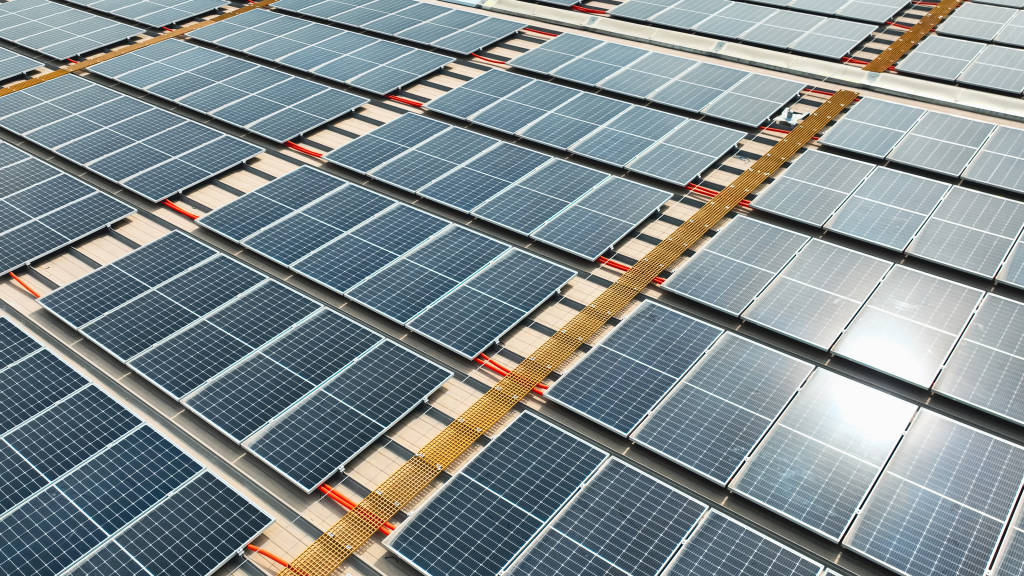
Throughout the fiscal year, Steelcase not only maintained carbon neutrality for its own operations, but also made progress toward its goal of reducing absolute emissions by 50% by 2030. One way the company made progress this year was by installing solar panels in its manufacturing facilities in Rosenheim, Germany and Pune, India. In Pune, the solar panels contribute 50% of the energy needed for daily activities.
BY THE NUMBERS
493
Solar panels installed
40-50%
Solar-powered
192
Metric tons of CO2 reduced per year
2,000
Hours of dedication
